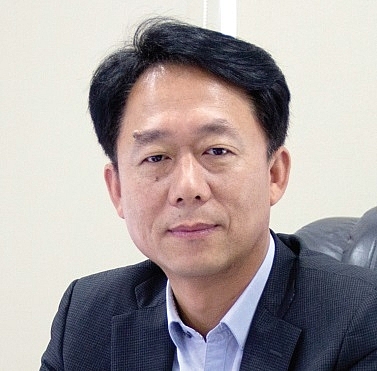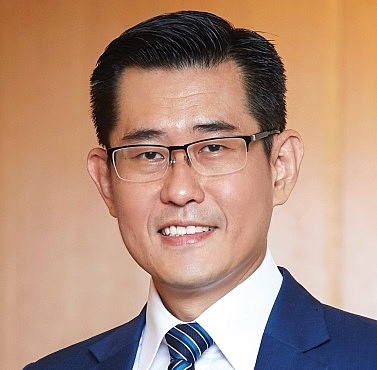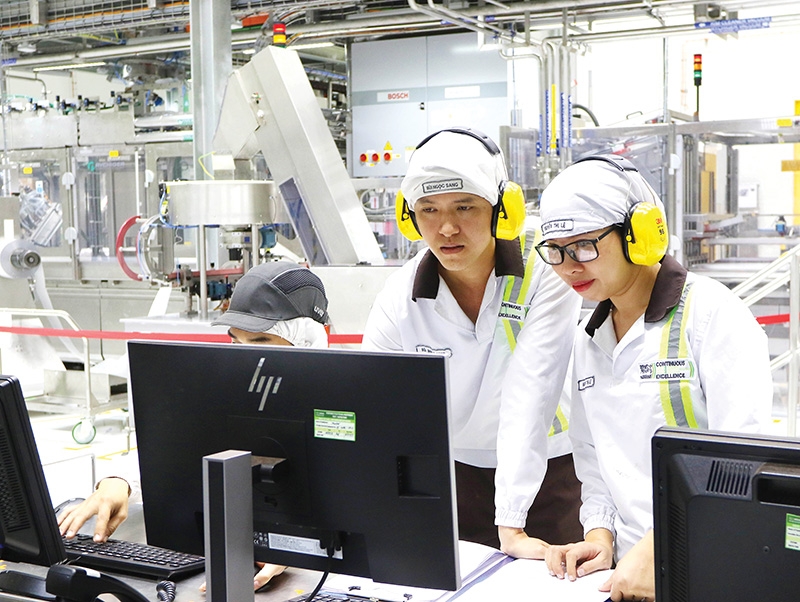 |
| The EVFTA is forecast to boost Vietnamese exports by double digits, Photo: Le Toan |
Vice State President Dang Thi Ngoc Thinh last week advanced the state president’s proposal on adopting the EU-Vietnam Free Trade Agreement (EVFTA) and the EU-Vietnam Investment Protection Agreement (EVIPA) to the National Assembly (NA) for approval.
The deals are scheduled for ratification on June 8.
For the EU side, the Council of the European Union in late March adopted the EVFTA. The month previously, the European Parliament officially passed the deal and the EVIPA.
According to the proposal, the agreements will help spur Vietnam’s economic growth and increase trade and investment, while generating an additional 146,000 jobs a year. However, there will also be numerous challenges facing Vietnam, especially in opening its doors to goods and services from the EU, and obstacles in boosting institutional reforms, infrastructure development, and human resources development, among others.
Minister of Planning and Investment Nguyen Chi Dung told the NA that it will be no doddle to get benefits from the deals’ commitments due to these barriers. “The ratification of the agreements is important, but how to materialise all commitments is more important,” he stressed. “Currently, Vietnam’s economic competitiveness remains low, with firms in general facing numerous difficulties due to their capital shortages and low-quality human resources.”
According to NA deputy Tran Hoang Ngan representing Ho Chi Minh City, the new agreements will “pressurise Vietnam to boost its reforms and competitiveness and create a fairer investment climate for EU investors and firms in the country.”
“Specifically, the introduction of the EVFTA is expected to bring more investors into Vietnam both from Europe and from the rest of the world. As the flow of foreign investment increases, so does the number of commercial grievances. So it is necessary for Vietnam to accelerate the development of a systemic investment response mechanism to settle disputes between investors and the state,” he said.
Echoing this view, NA deputy Hoang Van Cuong representing Hanoi also said that the government needs to clarify its roadmaps in realising commitments in the new agreements, or authorised agencies and enterprises will be unable to bring the deals into practice. “For example, Vietnam has been implementing commitments under the Comprehensive and Progressive Agreement for Trans-Pacific Partnership (CPTPP) since January 2019. However, one year after implementation, Vietnam’s export turnover from CPTPP member states increased only 7.2 per cent on-year, while its export turnover from global markets climbed 8.1 per cent last year. This means enterprises have not yet cashed in on the CPTPP’s benefits too much,” Cuong explained. “Currently, many documents guiding the implementation of the CPTPP have yet to be enacted.”
NA deputy Vu Tien Loc likened the EVFTA to a highway on which Vietnam must “pay fees”. “The ratification of the deals means the opening of the highway, but for the whole economy and for enterprises to run smoothly, much remains to be done including the improvement of the quality of laws, decrees, and circulars,” Loc said. “It is necessary to enact related laws and guiding documents so that the economy and enterprises can benefit from the new deals.”
Currently, the Ministry of Industry and Trade has drafted key contents of the government’s action plan on implementing the EVFTA. The plan defines goals and key tasks including five major groups – information diffusion; law building; improvement of competitiveness and human resources development; policies for trade unions and labourers’ organisations in enterprises; and policies on social security welfare, environmental protection, and sustainable development.
The World Bank last week announced a report on the impact of the EVFTA on Vietnam, estimating that by enjoying tariff reductions, the deal could boost Vietnam’s GDP and exports by 2.4 and 12 per cent, respectively by 2030, while lifting an additional 100,000-800,000 people out of poverty by 2030. The report argues that Vietnam could benefit even more from the next-generation trade deals if it stimulates a comprehensive agenda of economic and institutional reforms to facilitate compliance with non-tariff agreements.
|
Ann Måwe - Swedish Ambassador to Vietnam
With the National Assembly expected to soon ratify the EU-Vietnam Free Trade Agreement (EVFTA), a massive free-trade area comprising of nearly 600 million people will be formed. It shows Vietnam’s dynamic approach in pursuing international integration. The EVFTA will spur Vietnam’s economy to move up the value chain and deliver increased prosperity to its population. As a member of the EU, the EVFTA will create jobs and boost exports from Sweden to Vietnam. It will make it easier and cheaper for Swedish companies wanting to do business in Vietnam. The 99 per cent tariff reduction over a 10-year period is indeed welcome. The biggest advantages for Vietnam, however, lie in other parts of the agreement. The intellectual property provisions will further Vietnam’s innovation ability and allow for the country to deliver on its ambitions to become a leading economy of Southeast Asia, embracing Industry 4.0. The Trade and Sustainable Development chapter demand for increased care for the environment and human rights will further the more sustainable development of the Vietnamese economy. The COVID-19 pandemic is causing disruption to manufacturing value chains and hampers global trade. Sweden has been standing up for free trade during this period. It is perhaps more important than ever to resist closing our borders to trade. We note that Vietnam is a like-minded supporter of multilateral trade. The swift and active implementation of the EVFTA will allow Vietnam to turn this disruption in its favour and to use it as a tool to rebuild its economy, unleashing more of its potential. Jean-marc deschamps - Managing partner, Mazars Vietnam
The obvious benefit of the trade deal between the EU and Vietnam will be the elimination of virtually all tariffs by both sides during the next 10 years. While the EVFTA will bring opportunities, there are also challenges that Vietnam needs to be prepared for. New entrants into the Vietnamese market will require local companies to raise the quality of their products and services to remain competitive. Local companies that do not restructure or innovate will be left behind and lose their market share. European companies will also be looking for more skilled workers and managers, whereas these human resources are still lacking in Vietnam. While we are now an international firm, Mazars’ origin started in France, so we are very excited about Vietnam’s trade deal with Europe. We already serve many Europe-based clients in Vietnam, and we look forward to serving even more when new European investors enter the Vietnamese market. We believe the ratification of the EVFTA and the inevitable increase in European investment in Vietnam will open many opportunities for Mazars. We are confident and well-positioned to assist our current clients in Europe that will be entering the Vietnamese market for the first time. lee jae Eun - CEO, Everpia JSC
For the bedding business, the EVFTA will open up new opportunities for us to enter into the home textile market of the EU. Since the European home textile market has been traditionally dominated by Chinese suppliers, it has been difficult for us to penetrate the market in the past. With the EVFTA, we see more opportunities to be tapped into. For our cleaning business, it will strengthen our relationship with the current European buyers as the trade deal enables us to offer products at a more competitive price. Related Vietnamese products have been praised for their quality over Chinese products, thus the trade deal will boost export volumes. Moreover, we see prospects to import higher quality fabrics for our linen products in the domestic market. We expect this landmark agreement to become a milestone for Vietnamese enterprises to be a more integral part of the global economy. We also warn caution as more European businesses will enter to the Vietnamese market as we go into theirs. Yet we expect to benefit from each other as it will raise the standards of products and services. Colin Blackwell - Founder and CEO, Enablecode Co., Ltd.
Vietnam has performed very impressively with trade deals, leading to a highly internationalised economy. The EVFTA will further strengthen this trend and the opportunities arising. Vietnam has some of the best technology talent in the world, so investors come here for high quality not low cost. The challenge is to keep up with the rapidly evolving new technology and the skillsets it requires. The more local candidates and companies can deliver on the new soft skills, the more relevant they will be to European investors and clients. A particularly bright area will be increased business process outsourcing in Vietnam for European clients. As the pandemic has accelerated digital transformation and automation, Vietnam’s strength, stability, and business continuity will be a great asset to European companies looking to outsource business processes. Ywert Visser - International sales manager Asia-Pacific, Paul Mueller Company
The positive progress on ratification of the EVFTA resulted in one of our Vietnamese customers negotiating a large order with us. The equipment is produced in the Netherlands and can be imported here without customs duties after the EVFTA enters into force. Our customer confirmed to submit the order as soon as the Vietnamese National Assembly ratifies the EVFTA. Reaping the benefits of the EVFTA for our company is luckily very straightforward. The deal helps our customers in Vietnam to simplify the import of our equipment. This helps us to do business in the country and our Vietnamese customers have better access to high-quality equipment made in the EU. European firms will continue their desk research for doing business in Vietnam. John Walsh - International Business Programme manager, RMIT University Vietnam
The EVFTA contains some strong commitments for both sides, promising to bring tremendous opportunities for businesses and consumers. The current stalwarts of the economy, such as textiles and garments and agriculture, will continue to be important for many years to come. However, there is space for development into higher value-adding activities. The more producers can move up the ladder from commodity to branded products, the more stable their income will be and the further they can spread their products. This process could be accelerated by opening the domestic market to international retailers who are experts in incorporating local farmers into international value chains. For Vietnamese companies looking to export to Europe, it would be helpful to start with a European partner with expertise in local distribution, the way foreign businesses do it when they come to Vietnam. Overall, unique opportunities will be presented to Vietnam as it undergoes a process of rapid economic development, now with an EVFTA boost. We have seen Japan move from poverty to wealth, then South Korea, Taiwan, and Singapore, followed by subsequent waves of development involving Malaysia, Thailand, and China. Vietnam’s development follows all of these predecessors. Harry Loh - CEO, UOB Vietnam
The main objective of the EVFTA is to eliminate 99 per cent of tariffs between the EU and Vietnam over the next decade. This is expected to generate €15 billion ($16.35 billion) a year in additional exports from Vietnam to the EU by 2035, while EU exports to Vietnam are likely to expand by €8.3 billion ($9 billion) annually. The increase in exports will help to create more jobs and to drive economic growth in Vietnam. Further, with Vietnam playing an increasingly important role in the ASEAN’s trade corridor with the rest of the world, the EVFTA will position the country as a preferred destination for foreign investors seeking to expand into Southeast Asia. The EVFTA contains requirements in areas such as environmental governance and labour conditions which will help the country’s sustainability efforts. For example, Vietnam may need to address its commitment to the Paris Agreement and the International Labour Organization conventions. Action in these areas will, in turn, reinforce Vietnam’s economic competitiveness and attractiveness as a global supply chain base for multinational corporates. UOB has been operating in Vietnam for close to 30 years, having recognised the country’s potential as a long-term investment destination. Since we opened our representative office in Ho Chi Minh City in 1993 and established a full subsidiary bank in 2018, we have been deepening our local insights, building long-term connections and collaborating with strategic partners. We are committed to facilitating the business expansion of our regional clients into the country and will also support them in sustainable development for the benefit of the environment and local communities. VIR |
Thanh Dat
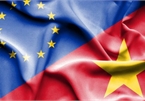
EVFTA to fan flames of European investor interest
European investors are expected to stir mergers and acquisitions activities in the coming time as the landmark free trade agreement between the European Union and Vietnam nears ratification.
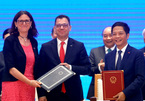
Vietnamese businesses ready to exploit EU market under EVFTA
Vietnamese enterprises’ awareness of EVFTA has been heightened significantly, and they have prepared to grab business opportunities and find a foothold in the supply chain.
 The upcoming bilateral free trade between Vietnam and the EU may be a tough nut to crack unless the country can make thorough preparations for fulfilling commitments in the deal to further its trade and investment with the bloc.
The upcoming bilateral free trade between Vietnam and the EU may be a tough nut to crack unless the country can make thorough preparations for fulfilling commitments in the deal to further its trade and investment with the bloc.

